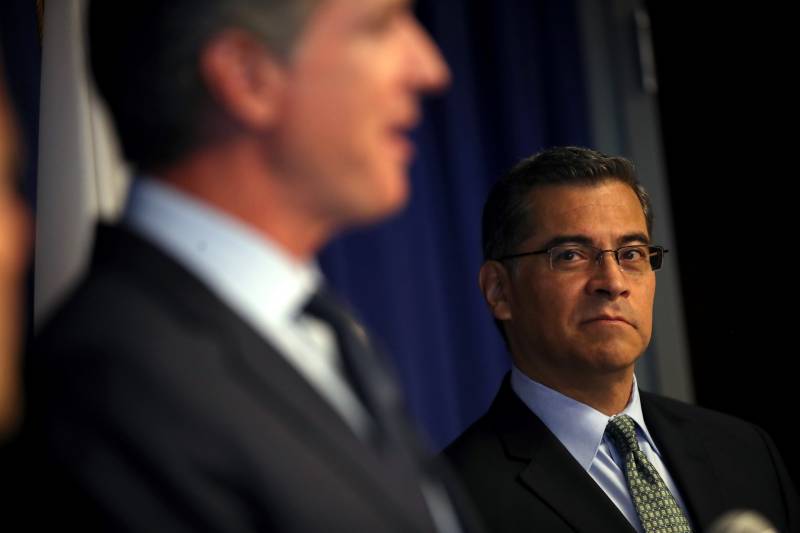He added, "Our actions and reforms have to be meaningful."
But nothing Becerra set out will be implemented immediately, at least not beyond the agency he oversees, the state Department of Justice. In fact, many of the policies Becerra endorsed are simply recommendations he is urging individual law enforcement agencies around California to implement. They include:
- requiring police to intervene if another officer uses excessive force
- requiring police to use deescalation techniques and verbal warnings before force is used
- banning chokeholds and carotid restraints
- using deadly force only as a last result
- creating guidance on proportionality
- prohibiting shooting from a moving vehicle, unless there's an imminent threat to human life
- comprehensive reporting when force is used
- banning "bite and hold" canine techniques.
Becerra noted that under a law set to take effect in January, police departments will be required to update use-of-force rules to include much of the above. He urged them not to wait until then to implement those policies — and said many departments are already contemplating rolling them out sooner than next year.
"Let's see if we can accelerate that," he said. "Let's see if we can show people that we can start doing this work without having to be required."
But John Crew, a retired ACLU attorney who spent decades on police reform efforts in California, said he was disappointed by Becerra's decision to push what he called "voluntary" reforms instead of using the power he has as attorney general to investigate and force law enforcement agencies to change.

